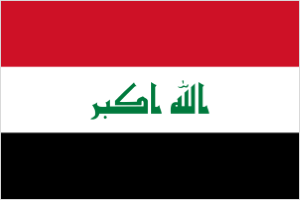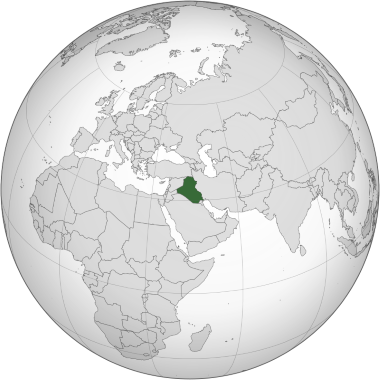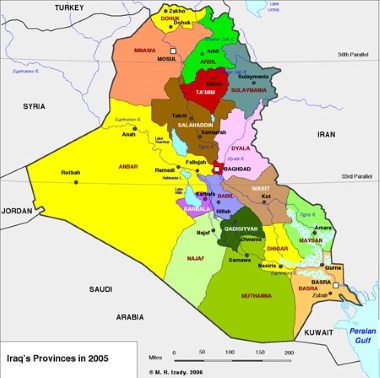
National flag - Wikipedia

View on Google

View Map
Iraq is one of the largest and most powerful countries in the Middle Eeast. Most of its people are Muslim and Arabic speaking. There are also some 4 million Kurds living in the north. Apart from the fertile plains of Tigris and Euphrates rivers, most of Iraq is mountainous or covered in desert. Only about a sixth of the country is suitable for farming and much of Iraq's food is imported. Since Iraq became a republic in 1985, it has experienced great political unrest. During the 1980s a bitter war was fought against Iran, and Iraq's invasion of Kuwait led to the Gulf War (1990 - 1991) and to intervention by an international force.
Mesopotamia: Many ancient peoples settled in Mesopotamia (part of which is now Iraq) because it lay in the fertile crescent of land formed by the Tigris and Euphrates rivers. The area has many ancient ruins, including stepped, pyramyd-like structures, called ziggurats, found at Babylon and Ur. The steps led to a temple at the top.
Baghdad: Baghdad, the capital of Iraq, lies on the banks of the river Tigris. It is a largest city in Iraq and the country's centre of business and goverment. A city of contrasts, it is a mixture of ansian mosques, modern high-rise buiding, and packed bazaars. Baghdad has been a centre of Islamic culture for more than a thousand years.
Piping oil: Iraq's most important natural resources are oil and natural gas. Oil production began on a large scale in 1945 and now dominates the economy. Because Iraq has only a short stretch of coastline along the Persia Gulf, it relies on pipelines through Turkey, Syria, and Saudi Arab to export its oil.
Marsh Arabs: The Marsh Arabs have hunted and finished in the marshes of southern Iraq for more than 5.000 years. However, they are now under threat beacause of their opposition to Saddam Hussein in recent years. The government is draining the marshes to water crops elsewhere, endangering both the Marsh Arab and the region's unque wildlife.